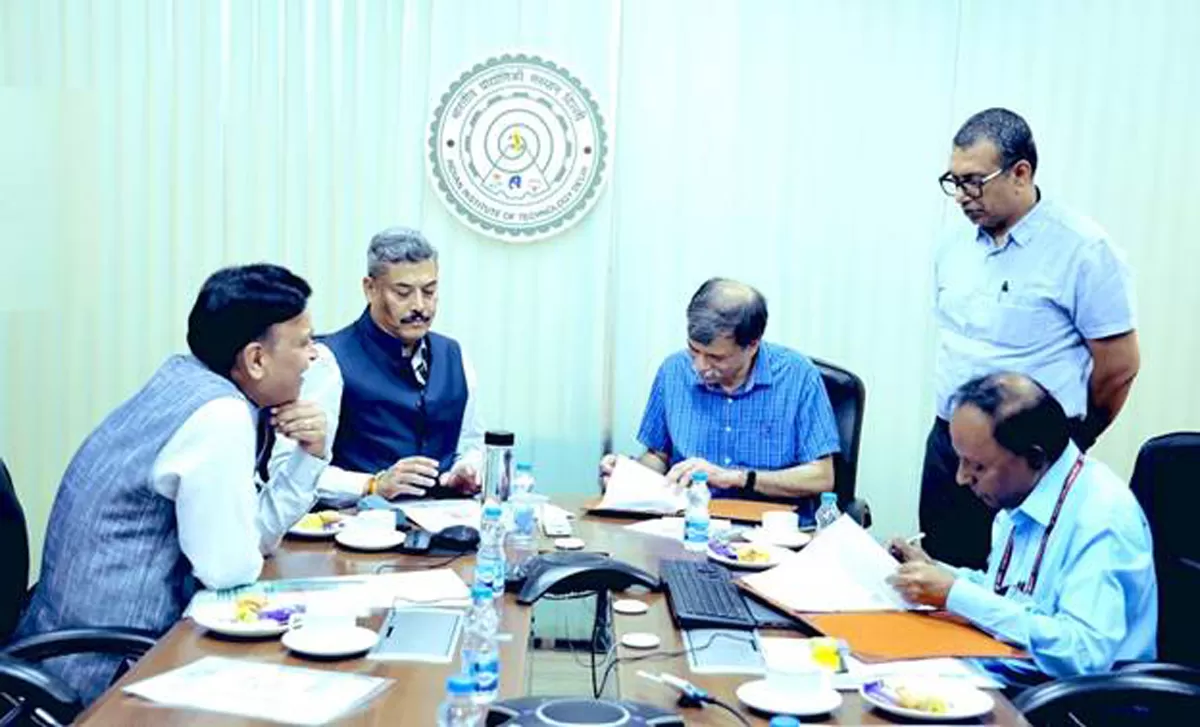
Here's how the DCPR 2034 will shape the future of Mumbai!
Read full article
CW Gold Benefits
- Weekly Industry Updates
- Industry Feature Stories
- Premium Newsletter Access
- Building Material Prices (weekly) + trends/analysis
- Best Stories from our sister publications - Indian Cement Review, Equipment India, Infrastructure Today
- Sector focused Research Reports
- Sector Wise Updates (infrastructure, cement, equipment & construction) + trend analysis
- Exclusive text & video interviews
- Digital Delivery
- Financial Data for publically listed companies + Analysis
- Preconceptual Projects in the pipeline PAN India

CRCL, IIT Delhi Sign MoU to Boost Science and Ease of Business
The Central Revenues Control Laboratory (CRCL), Central Board of Indirect Taxes and Customs (CBIC), Department of Revenue, Ministry of Finance, and the Indian Institute of Technology (IIT) Delhi signed a Memorandum of Understanding (MoU) toward trade facilitation and improving the ease of doing business. This MoU collaboration aims to foster R&D, innovation, and scientific excellence at CRCL, bolstering trade facilitation and regulatory efficiency.The MoU was signed by Prof. Rangan Banerjee, Director, IIT Delhi, and Shri V. Suresh, Director, CRCL, in presence of Shri Surjit Bhujabal, Speci..

CAQM Sub-Committee Activates 27-Point Plan to Improve NCR Air Quality
The daily average AQI of Delhi has been hovering marginally above 200 threshold with forecast of slight improvement since last two days. Today, Delhi’s daily average Air Quality Index (AQI) clocked 213 (‘Poor’ category), as per the daily AQI Bulletin provided by the Central Pollution Control Board (CPCB), owing to variable winds. In wake of the average/ overall air quality of Delhi recording ‘Poor’ air quality category ranging between 201-300, the CAQM Sub-Committee on GRAP met today to take stock of the current air quality scenario of Delhi-NCR. While comprehensively reviewing the a..

DoT Launches Financial Fraud Risk Indicator to Boost Cybersecurity
In a major step towards combating cyber fraud and financial crime, the Department of Telecommunications (DoT) has announced sharing of “Financial Fraud Risk Indicator (FRI)” with stakeholders- an output from a multi- dimensional analytical tool developed as part of the Digital Intelligence Platform (DIP) to empower financial institutions with advance actionable intelligence for cyber fraud prevention. This will enhance cyber protection and validation checks in case of mobile numbers flagged with this tool when digital payment is proposed to be made to such numbers.What is the “Financial ..














